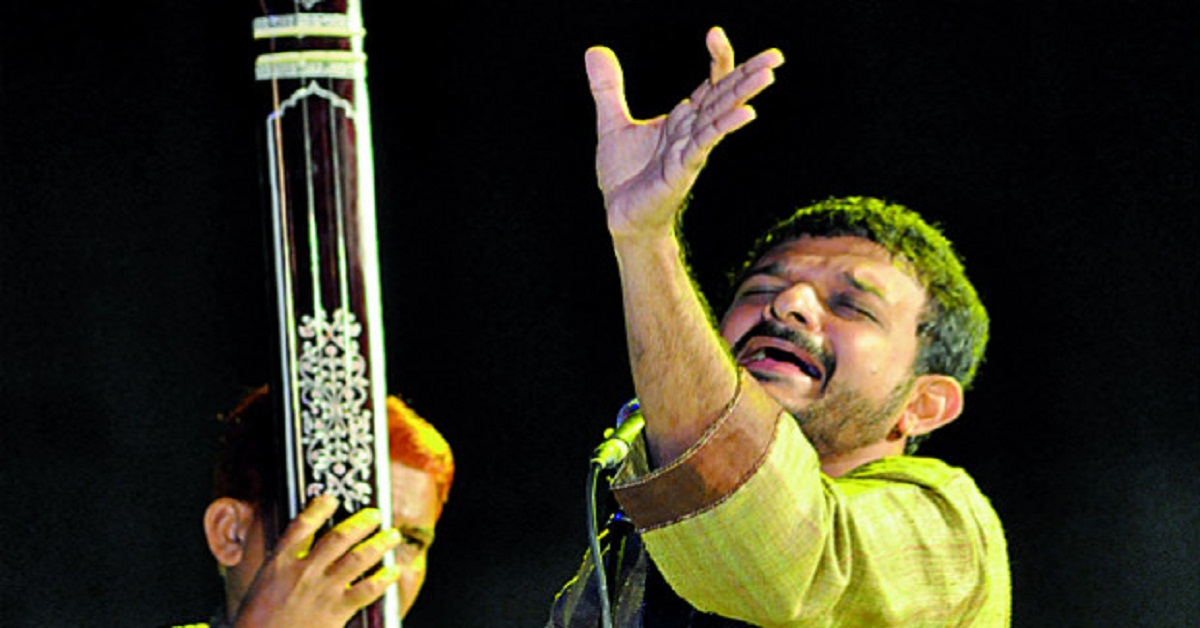
T.M.Krishna is a Carnatic music vocalist. His first concert was at the Spirit of Youth series organized by the Music Academy, Chennai (India). T.M. Krishna was born in Chennai on January 22, 1976.
He received his B.A. degree in economics from Vivekananda College, affiliated college of the University of Madras. Married to Sangeetha Sivakumar, who is also a Carnatic musician, on November 7, 1997, he has two daughters by name Arya and Anantha and lives in Mylapore.
At the Express Adda on Friday evening, Krishna spoke about pushing the boundaries drawn by our social order, how art can be mystical only when it comes from a complete awareness of its surroundings, not making classical forms a conserve of certain spaces only, and how politics is an integral part of everything, even music.
In conversation with Deputy Editor Seema Chishti and Associate Editor Amrith Lal, Krishna talked about his decision to challenge the social order — including his decision to not be a part of the famed December Margazhi season in Chennai — and said that he was not always like this. “It was only after a period of time, after I was in the world of music, that these questions that were lingering in my head came out. The whole journey actually started with singing, the act of making music. The questions were internal and personal. From there, in concentric circles they’ve enlarged into larger questions of society, politics, culture, music, and aesthetics,” he said.
Krishna has been hard to ignore, also because he’s been an insider “part and participatory in the discriminatory world”.
“I come from every privilege… caste privilege, gender privilege, economic privilege, and a certain kind of English-speaking privilege. Caste is not something I was grappling with. The more I immersed myself in art, questions of history started coming. Questions of beauty, sophistication, and these questions started troubling me… Soon you are asking questions of power structures and society. I stumbled onto caste. And it hit me on my face that all the mumbo-jumbo about art experience means nothing if I don’t really come face to face with who I am… I’m taking my own voice and my community’s voice and challenging it as hard as possible,” said Krishna.
He said a raga that he renders is problematic if it has ugliness, politically and socially, he cannot reconcile with. “If I brush aside one part of the story then it isn’t art. Art happens when everyone is engaged, keeping alive the complexity and making sure that the idea of beauty and ugly are not opposite and are intertwined. Then art can be transcendental. Otherwise, it’ll just be kosher. Art will not change the world if art and artistes themselves don’t change. Unless the artistes who are creating that art, the curators who are making that evening possible, the audience present are willing to politicise the aesthetic experience, what they may feel is divine, only then something can happen,” he said.
Talking about the problem of classical music is a part of certain spaces only, Krishna spoke of curating concerts on government buses, a beach in a fishing village among others. Krishna has joined forces with environmental activist Nityanand Jairam for the Urur-Olcott Kuppam Margazhi Vizha, which has featured forms such as Pariyattam, Villupattu, Gaana-Pattu and Kuthu, integral to Chennai’s identity but mostly not included in the December music season.
“It’s also a rediscovering process. You are stripped of everything that you protect — your stage is gone, distance is gone, mysticism is completely gone… Then it’s only music. I usually know my audience. Here, the audience may think that my music is the worst thing in the world. It’s frightening. But if you go through that experience, it changes your understanding of art, space… It also opens you, very importantly to rejection,” said Krishna, adding that while he finds problems in the system, his community finds him problematic due to his questions.
When asked about the absence of a strong instrumental tradition in Carnatic music, Krishna said while it was there earlier, the obsession with text and meend has affected the narrative.
Krishna concluded the Adda with a rendition of a piece that is usually sung in the morning, highlighting that music is an experience and one need not be trapped in the system of time, and morning and evening ragas.
Read also: Famous Indian Singer Sunidhi Chauhan about what is to be done for a better India

Post Your Comments